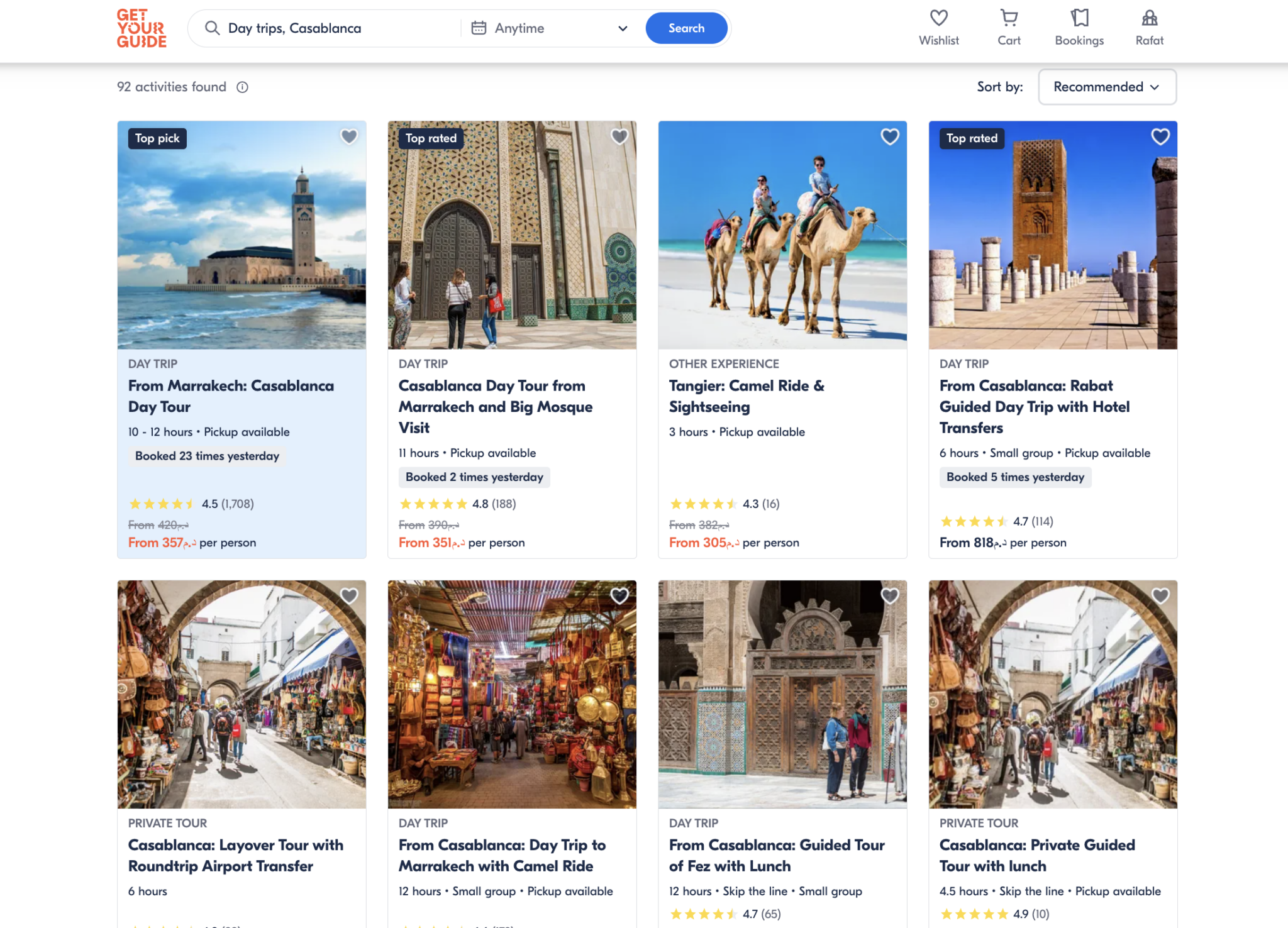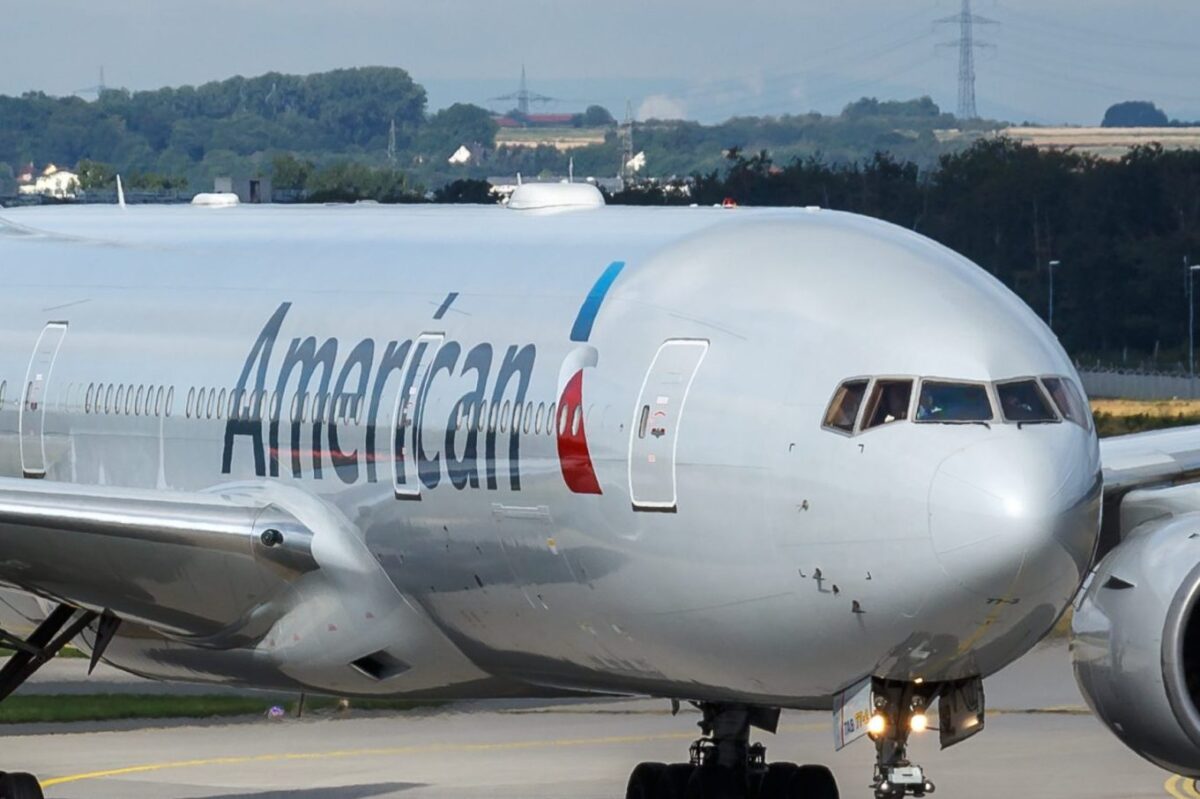Who’s Really Winning the Direct Booking Wars Between Hotels and Online Travel Agencies?

Skift Take
Editor’s Note: Skift Senior Hospitality Editor Deanna Ting presented a version of this story at the Bernstein Hotels Versus OTAs conference in New York on Thursday, February 28 to an audience of investors in the travel and hospitality industries.
So, who is winning the so-called direct booking wars? Is it the hotels? Is it the online travel agencies? Is it Google? Is it the consumer?
This is a question that so many people in the travel industry have attempted to answer and, thus far, we’ve seen some statistics that seem to suggest that the tide is changing a bit.
Back in November 2017, a little more than a year after many of the major U.S. hotel companies launched their respective direct booking pushes, a report from Kalibri Labs suggested that the hotels were, indeed, winning.
Compiling data from its database of more than 25,000 hotels in the U.S., including validated costs and daily transactions directly sourced from the hotels’ systems, Kalibri Labs found that there was indeed a shift in consumer behavior toward brand.com sites versus online travel agencies such as Booking.com or Expedia. More consumers than ever before chose to book direct versus booking on a third-party site.
Not only did the direct booking campaigns encourage consumers to book direct, but the Kalibri study also found that these campaigns were more beneficial for hotel owners than previously assumed. The hotels’ direct-booking campaigns — even by offering discounted rates to consumers — were actually generating more revenue for hotel owners than the online travel agencies were.
Kalibri Labs found that the net average daily rate of brand.com discounted loyalty rates was higher than the net average daily rate of room rates on the online travel agencies. The median net revenue benefit ranged from $9,000 to $33,000 per hotel as well, taking into account all discounts and loyalty and commission costs.
More recently, a newer report from Kalibri also showed that those direct booking campaigns engendered loyalty, or repeat business from consumers.
“Some people were sure [consumers] just signed up [for the hotel loyalty programs] to get discounts and that those members may have dropped off,” Kalibri Labs CEO and co-founder Cindy Estis-Green told Skift last month. “We didn’t track data by numbers of personally identifying information because of security, but the loyalty numbers keep going up. Fifty percent and growing is now the average when it comes to contribution to occupancy from brand.com channels.”
There are a few things to note here, however: The same time period covered by this second study was also when hotels enacted stricter cancellation policies, which may have had some impact on guest bookings.
So while Kalbri’s data and other data sources generally point to a slight shift toward more direct hotel bookings, that’s not the whole story in its entirety.
The Hotel Perspective
Now, if you listen to the earnings calls from the likes of Marriott, Choice, Hilton, IHG, Wyndham, Hyatt, and others, the CEOs of all those companies have rattled off recent statistics that show that their respective shares of direct bookings continue to rise.
I’m going to take a look at Hilton in particular, because Hilton has really been at the forefront of the direct booking pushes here in the U.S. In 2016, the company launched its biggest ever marketing campaign, called “Stop Clicking Around.”
Since then, Hilton has seen its loyalty membership rise, along with its direct bookings. It had just 51 million loyalty members at the end of 2015. Today, it has 85 million.
During Hilton’s most recent earnings call, CEO Chris Nassetta said that the company’s Web-direct channels “remain the fastest-growing channels that we have and are growing at a much faster rate than OTA channels.” That rate is three times the rate of all other channels.
He also said that Hilton’s direct channels “represent about 75 percent of our overall business” and that the Web channels “represent about half of that roughly.” And 40 or 50 percent of that Web channel business is coming in through Hilton’s app.
If we could sum up Hilton’s current direct booking campaign, Expect Better, Expect Hilton, it’s this: You should obviously still stop clicking around, but you should also expect a lot more from us when you (1) book direct with us, (2) join our loyalty programs, and (3) stay in our hotels.
As Nassetta said most recently, “We continue to give our customers even more reasons for why they’d want to go through those channels because it’s a better price, a better deal, and the experience will be better because of all of the other things they get with technology and otherwise as a result of being a member and buying that way.”
That tech includes the ability to choose your own room, use your phone as a room key, and control the lighting, temperature, and entertainment in your room from your own phone as part of Hilton’s new Connected Room concept.
Over at Hyatt, for instance, which is relatively much smaller than Hilton, they’re doing quite a bit to entice people to want to be a part of its World of Hyatt program. This includes buying up wellness brands like Miraval and Exhale, and offering those as part of the loyalty program, as well as forming loyalty partnerships with luxury hotel marketing alliances such as Small Luxury Hotels of the World, too.
The Online Travel Agency Perspective
Now if we look at the online travel agency side, the conversation has also evolved to be about more than just price. Online travel agencies — just like hotel companies and other travel brands — are trying to evolve into comprehensive experience platforms, or end-to-end providers of services and experiences.
This is especially the case for U.S.-centric Expedia and, to some extent, Booking Holdings, too.
One example that I think reflects the current state of negotiations between the hotel companies and the online travel agencies is the ongoing negotiations contract process between Marriott and Expedia. We still haven’t gotten any solid confirmation that those negotiations have been completed and finalized, but the current process highlights a few important things:
1. If Marriott is successful in lowering the commission costs its hotels pay to Expedia down to 10 percent from a reported 12 percent, it could certainly signal a sea change in the direct booking wars, tipping things in favor of hotels.
2. The negotiations are not just about commissions. It’s about the total value that each party drives to the other. Who gets preferred inventory? What about loyalty points? What about marketing and advertising? Or the ability to turn off the online travel agency channel during high-demand times?
3. Expedia saw its revenue per available room slow down to the low single-digit range in 2018, and if average daily rate drops, that will be a tough climb for Expedia to muster.
4. Even so, it’s estimated that Marriott accounts for approximately 10 percent of Expedia’s total hotel bookings, which represents a 10 basis points impact to take rate, and Expedia’s take rates have remained fairly resilient.
Bottom line? Both Marriott and Expedia still need each other. Hotels and online travel agencies are still dependent on each other.
Now, let’s take a look at Booking Holdings. Direct bookings are Booking Holdings’ fastest-growing channel, and now make up 50 percent of all reservations for the company, which Booking confirmed during its most recent earnings call on Wednesday. The company also said it is spending heavily on brand advertising to get more people to book direct on its sites.
The online travel agency also saw a record number of room nights booked in the third quarter, up 13 percent from the previous year. Gross bookings were 6 percent above the high end of the company’s guidance.
And a recent survey conducted by Cowen found that 50 percent of people who see Booking.com as their most important source of lodging have downloaded its app.
Skift Senior Research Analyst Seth Borko also recently compiled data on direct and organic search traffic for both Booking.com and Expedia.com from April 2016 to April 2018 and found that both companies have boosted that traffic during that period, while overall site visit volume remains mostly constant.
The New Battlegrounds
Switching gears, let’s talk briefly about the new battlegrounds in the direct booking wars.
The first is the independent hotel owner. Everyone is fighting for these stakeholders, from the hotels with their soft brand collections to the online travel agencies themselves who are developing software and services for those independents as well. It might even be argued that, in some ways, some of the online travel agencies are attempting to launch their own soft brand collections, too. This is especially true in markets like Europe where the industry is more fragmented, and where there is less chain dominance.
On a related note, I cannot over stress the importance of the hotel owner as a stakeholder in the direct booking wars. The truth is that the only ever absolute true direct booking for a hotel is when a guest walks into the lobby and books a room on the spot, essentially. The fact is that if a hotel owner is paying fees to a brand management company, he or she isn’t really collecting the total cost of that booking. No matter where or how a booking is made, the owner is still paying something to the brand. The owner is losing money either way — whether in fees being paid to a brand or fees being paid to an OTA.
So if an independent hotelier can figure out a way to thrive without the need for a brand or too much reliance on an online travel agency, that’s always going to be the most profitable strategy.
Both hotels and OTAs aren’t just fighting over consumers — they’re fighting over the hotel owners, too.
Another major battle area is the entry of other distribution channels that can threaten the duopoly that Expedia and Booking have. Namely, we’re talking about companies like Airbnb and Google. What happens when we include alternative or private accommodations, too? How will that change the landscape?
Or what about Amazon? What happens is Amazon decides to get back into travel? If it does, how would it do it?
With increased competition, it becomes tougher for the online travel agencies to compete.
And another new technology that could make it harder for online travel agencies to have access to preferred room inventory is the advent of attribute-based booking powered by enhanced reservations systems.
Hilton has had an early precursor version of this available for some time thanks to its Choose Your Own Room feature, but IHG and Marriott’s new reservations platforms promise to make it possible for guests to pick and choose specific attributes of rooms that they want to have, taking customization to another level.
In short, it’s not just a battle between hotels and online travel agencies. It’s a multifaceted war among a variety of stakeholders, if you really think about it.
And going beyond the battle for bookings, the hotel industry must also realize that getting the booking is just one part of the fight. The industry can’t forget about the guest experience, too — because that’s what keeps guests coming back and engenders true loyalty.
So, if hotels really want to win — or if the online travel agencies do — they also need to think about the product itself, as well as the overall experience that travelers have and how it informs their perceptions of these brands.
Even with those massive direct booking campaigns, there’s still a widely-held perception among many consumers that you get the best price for a hotel not on brand.com but through an online travel agency such as Booking or Expedia. This is an ongoing education and marketing process.
It’s too early to call a true winner in these so-called direct booking wars, but if we were to name a potential winner, it might just be the consumer. With more choices, more options, and more commitments to better hotel experiences and stays overall, it’s clear they are coming out on top.




